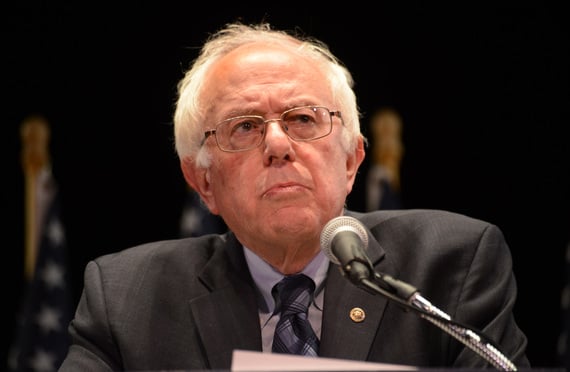A group of Republican governors is preparing a compromise planfor their peers in Congress who want to roll back Obamacare’sMedicaid benefits, asking them to preserve the law’s expansion ofcoverage to millions of poor people.
|Related: Republicans consider partially preserving Medicaidexpansion
|The compromise proposal has been initiated by a group includingOhio Governor John Kasich and Wisconsin Governor Scott Walker, andwould hold on to parts of the Affordable Care Act’s expansion ofthe program. It’s meant to satisfy Republican goals of repealingObamacare and giving more control of Medicaid to the states, whilealso maintaining coverage of people such as childless adults andthose just above the poverty level. It would also open the door forstates such as Wisconsin to broaden Medicaid eligibility.
|The compromise plan and the effort to promote it was describedby senior state officials, who spoke on condition of anonymitybecause it isn’t yet public. The group also includes Utah, Arizona,and Tennessee, according to the officials. The proposal waspresented to larger groups of governors in the past week duringtheir winter meeting in Washington, according to the officials.
|Other state officials spoke on the record about what they’reseeking from Republicans who are crafting changes.
|Related: GOP governors hope to protect Medicaidexpansion
|“What we’re trying to do is have everybody be on the same pagewith something that’ll actually pass and work in the states,”Tennessee Governor Bill Haslam said Tuesday at a pressconference. Haslam said the group has been holding conference callsabout every other day.
|Jon Thompson, a spokesman for the Republican GovernorsAssociation, declined to comment.
|Funding choices
Another element of the proposal deals with how the Medicaidexpansion is funded. Republicans in Congress have talked aboutmoving to a “block grant,” giving a fixed amount of money to eachstate.
|Related: Seema Verma gets second vote after tie at Senatecommittee
|The governors want the option to use a more flexible per-personallotment that would protect their budgets if Medicaid rolls grewquickly, for example in a recession.
|Some proposals to replace the ACA would result in “foreverrestructuring the Medicaid program to cut expansion and cap whoreceives benefits,” said Andy Slavitt, the former head of theCenters for Medicare and Medicaid Services. “This has governors andcare providers rightly up in arms. I for one believe we need anhonest debate about limiting the care provided to kids, seniors andpeople facing addiction to pay for tax cuts.”
|Repeal and replace
The proposal comes as Republicans in Congress are trying tocoalesce around how to repeal the Affordable Care Act and replaceit with a policy of their own devising.
|Related: ACA Medicaid expansion: Game changer for thepoor
|Some have called for a total repeal immediately, while otherssay no effort should go ahead without a program to maintaincoverage. Wisconsin’s Walker on Thursday met with RepresentativeKevin Brady of Texas, the leader of a key House committee craftingthe ACA replacement plans, and discussed health care and taxes.
|Thirty-one states expanded Medicaid under Obamacare, while someRepublican-led states opted not to. Those program expansionsbrought coverage to about 12 million Americans, and governors havebeen saying for months that Congress should movecarefully.
|Keeping the coverage expansion intact would benefit companiesincluding Centene Corp. and Molina Healthcare Inc., which havebuilt big businesses around covering low-income people.
|Seeking flexibility
Nate Checketts, director of Utah’s Medicaid program, emphasizedthat there isn’t yet consensus among GOP-led states. But Utah andothers like it want flexibility to join the program if itcontinues, he said.
|Related: Need a reason to expand Medicaid? New report has 27billion
|“If there is a program that’s out there we, as a non-expansionstate, and we assume other states like us, want to have access tothose funds,” Checketts said.
|Representative Joe Barton, a Texas Republican who sits on one ofthe committees writing the bills, said he wasn’t surprised by thattype of request.
|“Governors want more money, longer, with no strings attached,”Barton said Thursday in an interview. “They’ve wanted that for30 years. They’ll want it 30 years from now.”
|‘Workable reforms’
The governors’ proposal was presented to larger groups ofgovernors last week at their winter meeting in Washington,according to the state aides.
|Related: Medicaid expansion costs making statesnervous
|“The governor has been pretty clear that he doesn’t want to seethe rug pulled out from anyone,” said Christina Corieri, a seniorpolicy adviser to Republican Governor Doug Ducey of Arizona.“We are willing and at the table to talk about financing reforms toMedicaid, as long as those are workable financing reforms, as longas those are equitable, and as long as we get the flexibility tomanage” the program.
|States also appear to be coming together around the idea thatCongress needs to shore up the individual health insurance marketbefore tackling Medicaid, lest people get shifted into a systemwhere they can’t get affordable coverage. Some Republican proposalsin Congress would move some people off Medicaid.
|“You can’t move anyone out of the program without someaffordable, viable option to move them into,” Arizona’s Corierisaid. She said her state is open to the idea of addressing bothMedicaid and the individual market at the same time, orseparately.
|“States do have concerns about what happens to individuals ifthey’re not covered by Medicaid,” Utah’s Checketts said. “Whatother options do they have?”
|There are signs that President Donald Trump is at leastsympathetic. In a Tuesday night address to Congress, Trump said areplacement plan should give governors “the resources andflexibility they need with Medicaid to make sure no one is leftout.”
|Senator Rob Portman, an Ohio Republican, interpreted thoseremarks to mean Trump supports keeping the Medicaid expansion.
|“We have to address that population, and that’s what he said,”Portman said in an interview after Trump’s speech. “You can’t leavethese people behind.”
Complete your profile to continue reading and get FREE access to BenefitsPRO, part of your ALM digital membership.
Your access to unlimited BenefitsPRO content isn’t changing.
Once you are an ALM digital member, you’ll receive:
- Critical BenefitsPRO information including cutting edge post-reform success strategies, access to educational webcasts and videos, resources from industry leaders, and informative Newsletters.
- Exclusive discounts on ALM, BenefitsPRO magazine and BenefitsPRO.com events
- Access to other award-winning ALM websites including ThinkAdvisor.com and Law.com
Already have an account? Sign In
© 2024 ALM Global, LLC, All Rights Reserved. Request academic re-use from www.copyright.com. All other uses, submit a request to [email protected]. For more information visit Asset & Logo Licensing.








